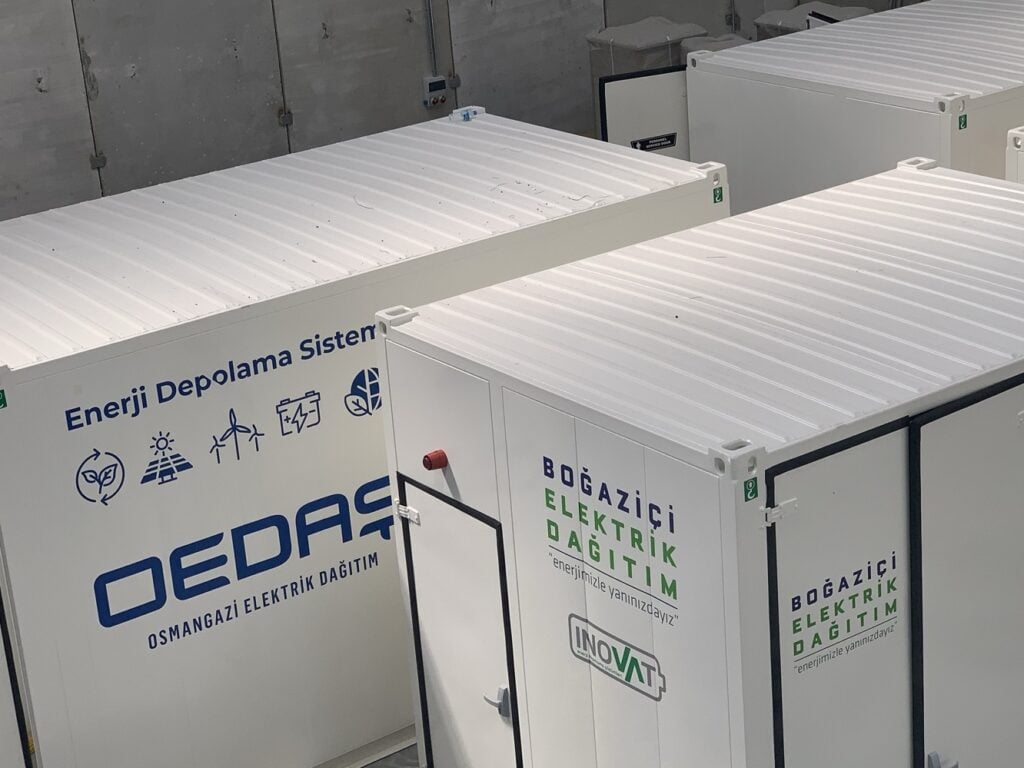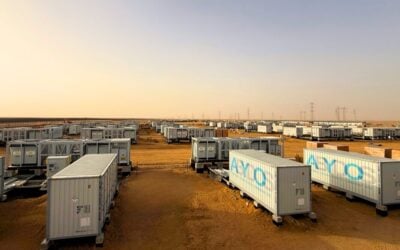
The national regulator in Turkey has begun awarding pre-licensing for energy storage facilities paired with wind and solar, with around 20GW expected to be issued over a period of about three years.
Pre-licenses were issued for a total of 12 applications, totaling 744MW, by the Energy Market Authority earlier this month, representing an investment value of around US$1.5 billion.
Enjoy 12 months of exclusive analysis
- Regular insight and analysis of the industry’s biggest developments
- In-depth interviews with the industry’s leading figures
- Annual digital subscription to the PV Tech Power journal
- Discounts on Solar Media’s portfolio of events, in-person and virtual
According to remarks by Energy Market Regulation Authority (EMRA) head Mustafa Yilmaz, these are the first selected from 4,369 applications, adding up to about 221,000MW, state-owned news outlet Andolu Agency reported.
The pre-licensing comes after key regulatory changes including an EMRA ruling in 2021 that energy companies should be allowed to invest in energy storage. Last year, energy laws were adapted to allow power producers to develop new renewables projects on the congested Turkish grid, if paired with energy storage.
The latest announcement is a big step towards establishing a market for large-scale energy storage in the country, Energy-Storage.news heard from Korkut Öztürkmen, board member at Aksa Energy, one of Turkey’s largest independent power producers (IPPs).
Öztürkmen is also on the board of Turkey’s electricity generators’ association, which he said has been working on business development activities for energy storage for about four or five years.
Investors are eligible to put renewable energy projects combined with approved storage capacity on a one-to-one ratio, 1MW/1MWh wind or solar per 1MW/1MWh of energy storage. Aksa Energy had applied for pre-licensing and would begin developing wind and solar projects with storage as soon as granted.
“The target of the Minister of Energy is in the first phase to provide at least 20,000MW licensing. So in the coming two to three years Turkey will be a very promising market for storage projects,” Korkut Öztürkmen said, adding that provisions for rewarding domestic industry participation are also “on the agenda”.
According to the Aksa Energy board member, the storage initiative has been opened to support the development of renewable energy first and foremost.
Renewable energy capacity has been tendered for in auctions to receive feed-in tariffs (FiTs) but in recent rounds the prices have been too low to enable projects to be realised.
“With this new regulation, if [renewable energy power plants are] then accompanied with storage, there won’t be any auctions, no feed-in tariff. This is a good development, but on the other side, these will be fully merchant power plants which are selling into the spot market or to commercial PPAs.”
It will take time for EMRA to process the entire backlog of more than 200GW of applications, although there may be some overlapping of projects in that pipeline, but Öztürkmen anticipates that within the next two years, “we will be hearing [about the] kickoff of at least 20,000MW installations”.
“After that, of course, the rest will follow,” Öztürkmen said.
Energy-Storage.news’ publisher Solar Media will host the 1st Energy Storage Summit Asia, 11-12 July 2023 in Singapore. The event will help give clarity on this nascent, yet quickly growing market, bringing together a community of credible independent generators, policymakers, banks, funds, off-takers and technology providers. For more information, go to the website.






